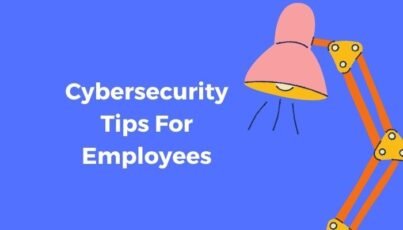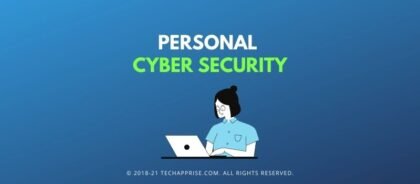People are viewing more movies and television episodes online than ever before because of the growing popularity of streaming services such as Netflix and Hulu. The fact that these services can follow your watching patterns and sell the information to advertising raises worries about your privacy, although it provides a great deal of convenience. So, to safeguard our privacy, these are the steps to do.
Threats That Are Common While Streaming Media
It is crucial to realize the risks that you run when streaming video online, including:
- Links in YouTube video descriptions and comments are popular forms of malicious content that entice users to explore websites that are contaminated.
- The advertisements on sports streaming services are known for being disruptive and destructive. Even worse, they may be infected with viruses, which may adversely damage the quality of your watching experience.
- Users of well-known websites like Hulu, Netflix, and Amazon Prime Video are often the targets of phishing schemes.
- Free movie websites are not only breaking the law, but they also spread malware into your computer by displaying advertisements for other malicious websites.
- If you see pop-ups while using Netflix, this shows that your web browser or computer has already been compromised.
What Are the Dangers And Threats That Are Posed By Hackers To Users Of Smart TVs?
The dangers are posed by anything that has components such as microphones, and cameras. Data mining which depends on your history and preferences over streaming makes everything a potential risk.
In its most basic form, smart TVs are essentially computers that are powered by an operating system. The dangers that come with using a computer are also present while using a smart TV. An adversary person might also use your smart television as a gateway to eventually access other electronic devices connected to the same home WiFi.
How To Protect Yourself Then?
1. Enjoy the Benefits of a Virtual Private Network
If you have been using a streaming service to watch movies and programs on television, there is a high possibility that you are familiar with the concept of virtual private networks. This is essentially simply a kind of encryption software that cloaks your IP address so that it cannot be traced back to you.
Besides, you can solve buffering problems VPN to watch Netflix or other services via this technology. Since VPNs create a secure tunnel on the internet, they can actually increase your internet speed and prevent buffering. Just focus on selecting an available server location and enjoy your much better streaming experience.
Once you have successfully joined one of these VPNs, all of the data and traffic on your associated networks will be encrypted. This ensures that neither your Internet service provider nor the government will monitor your online activity. When you surf the Internet in the future, the IP address of the virtual private network you are using will be shown to everyone who attempts to see your data.
2. Stream Content Only from Trustworthy Websites
You should restrict your search for a new streaming service to websites that have a solid reputation for providing high-quality video and audio content. The streaming services Hulu, Netflix, Pandora, and 123movies, as well as Amazon, are just a few examples of those that may be relied on completely.
Avoid using any companies or services that you have never come across before. If you cannot remain aware of your surroundings in the internet world, you risk falling prey to a hacker and having your information stolen.
3. Utilize a Proxy Server
A proxy server is an additional instrument that you may employ to secure your privacy while viewing movies online. Proxy servers, much like VPNs, route your internet traffic via a server in a location of your choice. These do not encrypt your traffic; hence, using them will not assist with the privacy problems that were discussed before.
Proxy servers are helpful for users who wish to stream material from particular websites but cannot do so from their current location because the websites restrict access.
4. Try an Ad Blocker
Ad blockers prevent adverts from being shown on websites to achieve their intended purpose. This implies that marketers cannot follow the advertisements that you view to monitor your activities. The majority of ad blocker extensions for browsers may be downloaded for free, and there are a variety of different ones available to choose from.
5. Update Your Password Frequently
One of the most typical errors that people make is that they establish a complicated password once, but then they never change it again. It might challenge to keep in one’s memory a lengthy array of sophisticated passwords. But there is no such thing as an unbreakable password. If many accounts use the same password, it makes it easier for hackers to get into all of those accounts at once. Keeping track of complicated passwords is easier with the assistance of a password management service.
6. Clear Out Browser History
It is important to clear the browser history on all of the devices you use during the day, including the computer at home, at work, and even an iPad. Internet browsers like Firefox and Chrome remember the websites you visit and the actions you do while you’re online and save this information. Information regarding what you’ve transmitted from or stored on your computer may be preserved for many days or even weeks.
7. Don’t Use Free Wifi
A growing number of public venues now provide free wireless access to the Internet; you shouldn’t take advantage of this just because it’s there. It is not always necessary for a user to have a password to join one of these wireless networks. Even while these services might be helpful, you should know they also provide a simple route for cybercriminals to access anything on your device. It is recommended that you avoid using it unless there is an interesting reason to do so.
8. Prefer HTTPS
This protocol is quite similar to HTTP, which is what is entered while searching for websites on the internet. When you are online, using HTTPS provides an additional layer of protection and encryption. All encrypted communication takes place between users and websites that implement the HTTPS protocol. Additionally, the information has been verified. This indicates that HTTPS may be used to ascertain whether or not a website is authentic.







![Cyber Security: An Ultimate Guide [2021]](https://techapprise.com/wp-content/uploads/2018/05/work-from-home-quotes-10-min-420x184.jpg)



![DDoS Attack: Definition, Types, Prevention [2021]](https://techapprise.com/wp-content/uploads/2018/10/DDOS-ATTACK-IMG-1-409x230.png)
